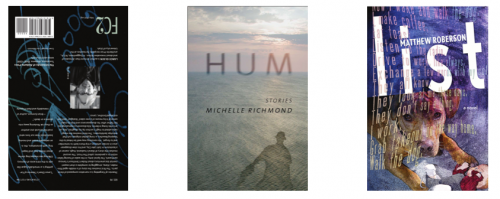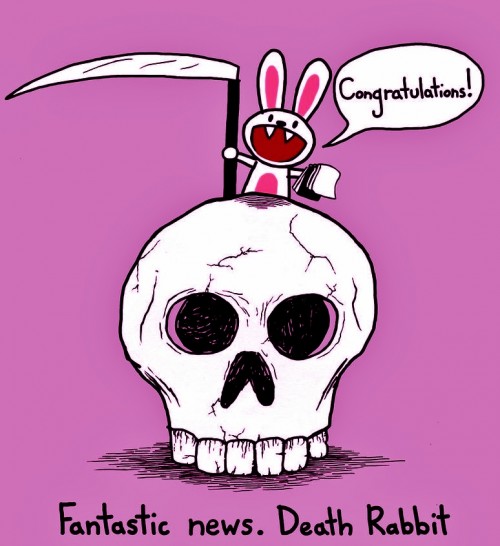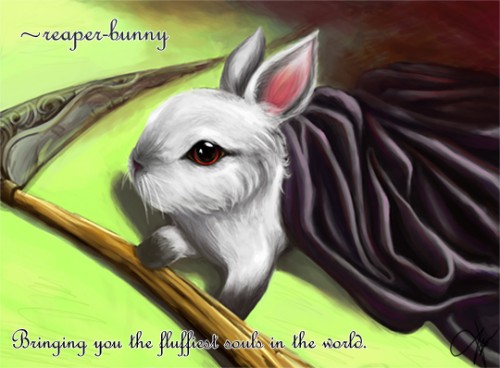So check it out. My name is Alexandra Naughton. Some call me “tsaritsa.” Some call me “based goth.” Others call me “fuckhead.”
250 Points: The Hobbit pt 2: The Desolation of the Hobbit
- I missed The Hobbit: The Desolation of Smaug in theaters. Obviously since I wrote so much about the last one, I considered seeing its follow-up on more than one occasion, but just couldn’t summon the energy, even though a good friend invited me to join her, promising she’d bring snacks from Trader Joe’s.
- And then a few days after that, while I was out strolling the boulevard, I passed another friend who was en route to see the thing, on a lazy, chilly Sunday afternoon. But instead of joining him, I went home and took a bath.
- So you can see how excited I was to watch this movie. Please keep that in mind as you read this.
- Then the film left theaters, and I realized I’d missed my one and only chance for all time. I rushed to my local multiplex and pleaded with its employees to give me a private screening, but they refused, and threatened to call the police. Again.
- I despaired, and spent a week wondering what had happened to Bilbo, and Gandalf, and Thorin, and Whorin, and Hewy, and Dewy, and Chewy, and Killy, and Thrilly, and Culty, and the ninety-seven other little dwarves, and everyone else in Middle-earth.
- Suddenly, just when I could no longer bear the suspense, a CGI moth flew through my window, gripping an AVI copy of the film in its fuzzy mandible. It landed on my shoulder and mumbled something about how Gandalf was in trouble and “needed me.”
- Well, I need you, too, Gandalf! So I decided to watch the movie, after all, and take a lot of notes.
- These are my notes.
- It’s been fifteen long months since I watched An Unexpected Journey, and I barely remember anything that happened in it.
- It occupied a tremendous number of minutes? And presented a great many wolves and goblins that were born in a super-computer’s digital bowels?
- I do recall that the movie featured at least one terrific scene: the riddle game between Bilbo and the creature known as Gollum.
- Gollum won’t be in this new film, I have heard, which is a minus going in.
- Even still, I have no doubt that this movie will do its best to amuse and delight us, because that is how capitalism works. So let’s get right to it! READ MORE >
Kill Marguerite and Other Stories
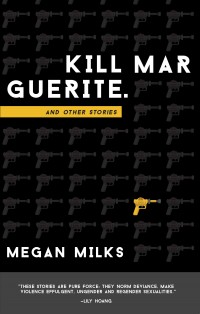 Kill Marguerite and Other Stories
Kill Marguerite and Other Stories
by Megan Milks
Emergency Press, 2014
240 pages / $15.95 buy from Amazon or Powell’s
Rating: 8.5
A few weeks ago I was made vaguely aware of a Flavorwire article about trigger warnings. Later on, as I read Kill Marguerite I found myself writing “trigger warning” in red pen before almost every story in the collection. I know that for many the argument for TWs is to save pain and suffering for those who spend day in and day out struggling to avoid triggering material—it’s just common internet courtesy. I very much respect that, but I’m left thinking about how these warnings prevent the dialogue that the content often necessitates.
April 29th, 2014 / 12:00 pm
……National Poetry Month Death Match #2……
******
April is winding down and I’m not really sure how much was settled with the first National Poetry Death Match (ie, my soul is still soooooo confused) so in order to settle things I’ve decided to bring out two more big, passionate and extremely eloquent mercenary lovers for a second “Death Match” where I hope the “disturbing contraries of my soul” can be brought into line, can be made to heal, can be brought into a beautiful, “poetic” harmony.
******
******
And, so, the second National Poetry Month death match is between Russell Jaffe and Seth(x) AbraHaM$on. And, no, this is not Seth Abramson, it is, instead, a well known writer who has chosen, here for the ring of this Death Match, to be know as Seth(x) AbraHam$on.
******
National Poetry Month: More poems for more people sounds good to me
by Russell Jaffe
Look: Poetry can be a real distance READ MORE >
April 29th, 2014 / 9:00 am
What’s the worst piece of writing advice you’ve received? For me, it’s a tie between “write what you know” and “never get high on your own supply.”
Kill Marguerite and Other Stories by Megan Milks
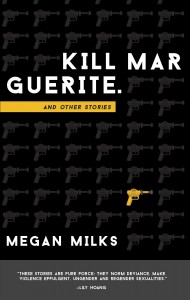 Kill Marguerite and Other Stories
Kill Marguerite and Other Stories
by Megan Milks
Emergency Press, March 2014
240 pages / $15.95 Buy from Amazon or Powell’s
The possibility of Sweet Valley High twins Jessica and Elizabeth Wakefield having incestuous sister-sex with each other never occurred to me when I was a kid and living for those books, even though half the joy of reading them was a desire for violation when faced with all that phony perfection. I always wanted something sexual or terrible to happen, more than a kiss or someone having her bikini top untied in the pool. (The other half of the appeal was jealousy—oh to be 5’6”, blond, and have sparkling aquamarine eyes and a twin sister! Pulchritude amplified.)
So, I am grateful to author Megan Milks, who in her debut story collection, Kill Marguerite and Other Stories, writes in a letter from Elizabeth to Jessica, “I want to spend the evening watching you get yourself clean. I want to shave my head and lie in bed with you all day long. I want you to tell me you love me more each time you look into my eyes. Tell me I’m what your hands were made for, what your mouth was made for.” It’s hilarious, wonderful, mixed-up, and just how I–and probably all the other dirty-Barbie-players out there–feel about these icons. Do we want to be them, fuck them, destroy them? All at once?
April 28th, 2014 / 10:00 am
Inside Madeleine by Paula Bomer
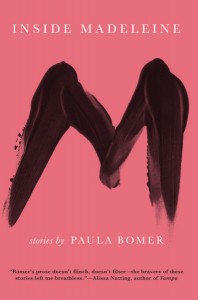 Inside Madeleine
Inside Madeleine
by Paula Bomer
Soho Press, May 2014
272 pages / $16 Buy from Amazon or Soho Press
The stories in Paula Bomer’s Inside Madeleine take your hand, tell you a secret, and then burp in your face, giggling. They are honest, playful, and cagey, and the very title of the collection suggests these tonal complexities: while Inside Madeleine refers literally to the various objects one character inserts into her vagina (bars of soap, a rubber ducky, penises), it also suggests something unfiltered, like when a reporter promises to take viewers “inside” an important issue or place. But here, Bomer’s mischief arises again, because programs like Inside Edition (or anything that offers the “inside scoop” on the life of a celebrity) are lurid and full of shit. And so the characters in Inside Madeleine are all these things too: playful, unfiltered, lurid, full of shit. At the beginning of the book, a narrator says that women are “supposed to be nice, well behaved things,” but, thankfully, nothing is nice and well behaved about Bomer’s fiction.
April 28th, 2014 / 10:00 am
Feliz Molina & Ben Segal
from The Middle
Infer, no, inferno. Gather the facts before inferring that
we are living in an inferno. A war on many things;
they want to kill you for any reason, make money off
you, lick you bone white and dry. They would rather
see you poor, imprisoned, uneducated, sick, hungry.
They want to keep you alive.
* * *
Practically all things are related in one form or
another. What kind of boy is unboyfriendable? What
kind of girl? Not in words are we like our parents.
Only in words are we like our parents. Language is
premise enough to begin. You will always be between
your mother and father, regardless of if you never
met them—a bloody and fleshy edge of comfort and
discomfort.
* * *
Translation teaches that stanza means room. Bakhtin
wrote of literature’s architectonics. A book is a static
and constructed space through which a reader moves
at will. It is rooms and passages, design decisions.
Ought the same wood floor to flow from the dining
room to the kitchen? Where should we place a
doorway? Does this blotch of blankness cry out for
carpet? I should have studied architecture. The way
through might have then been less jarring. Let’s begin
again as always.
* * *
Things are said to fall apart – thank God. I split my
day into parts just to manage. Whole hours at once
overwhelm. Days come as waves or weights to rend.
But dissolution’s only normal. Cells want to split.
And dismal couples. Hot legs and hot dog buns. The
double doors of the city bank lobby. The seams of
tight pants desire this, the lips of hungry mouths. We
break bread and promises. We cut film. We split
seconds and sides and the rent. The trees branch out
just to live.
Bio: Feliz Lucia Molina is the author from UNDERCASTLE (Magic Helicopter Press) and co-author of The Wes Letters (Outpost19). Her poems are published and forthcoming in Gauss PDF, The Volta, Electronic Literature Organization Vol. 2, comma, poetry, Coconut, and others. She is currently gathering material for HANDS: a journal of poems typed & handwritten and makes chaps for Museum Of Expensive Things.
Ben Segal is the author of 78 Stories, co-author of The Wes Letters, and co-editor of the anthology The Official Catalog of the Library of Potential Literature. His chapbooks Science Fiction Pornography and Weather Days were published by Publishing Genius and Mud Luscious Press, respectively, and his short fiction has been published by Tin House, Tarpaulin Sky, Gigantic, and Puerto del Sol, among others.
BEAUTY BY HTMLGIANT
 I visit beauty sites quite often. This is a thing to do when one’s life is a sequined distillation of anxiety or tragic Debbie Gibson video. While looking for an eyeliner with sufficient grit, I thought of curating a series of interviews for HTMLGIANT on beauty and health. I tweeted that I thought it would be cool and sad, especially regarding the grooming habits of writers in whatever mundane/metaphorical/actual ways they manifest themselves. I talked to Gene about it, and he had just upped his routine to something containing algae, and BEAUTY BY HTMLGIANT was born. The first installment will feature Leesa Cross-Smith, author of EVERY KISS A WAR. It is expensive to be sane.
I visit beauty sites quite often. This is a thing to do when one’s life is a sequined distillation of anxiety or tragic Debbie Gibson video. While looking for an eyeliner with sufficient grit, I thought of curating a series of interviews for HTMLGIANT on beauty and health. I tweeted that I thought it would be cool and sad, especially regarding the grooming habits of writers in whatever mundane/metaphorical/actual ways they manifest themselves. I talked to Gene about it, and he had just upped his routine to something containing algae, and BEAUTY BY HTMLGIANT was born. The first installment will feature Leesa Cross-Smith, author of EVERY KISS A WAR. It is expensive to be sane.
WHAT BOX? Talking with Lance Olsen on FC2’s 40th Birthday
Founded in 1974, FC2 is one of America’s best-known ongoing literary experiments and progressive art communities. In honor of FC2’s fortieth birthday, publisher Lance Olsen has generously answered the following questions about publishing, longevity, and innovation.
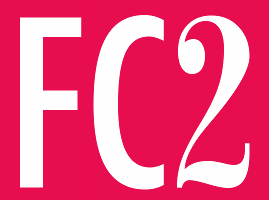
***
Rachel: What is FC2?
Lance: FC2—short for Fiction Collective Two—is a small, independent, not-for-profit press run by and for innovative authors. One of America’s best-known ongoing literary experiments and progressive art communities, for the last 40 years FC2 has dedicated itself to bringing out work too challenging or heterodox for the commercial milieu. Originally founded in 1974 as Fiction Collective by a handful of writers—Ronald Sukenick, Raymond Federman, and Jonathan Baumbach among them—FC2 has so far published more than 200 books by more than 100 authors.
Rachel: What does FC2 mean to you?
Lance: FC2 is an ongoing investigation into what innovative writing means—and that meaning is continuously in flux. One of the great joys for me about our editorial meetings, which take place once or twice in the fall, and once or twice in the spring, is that they make up an ongoing conversation about such troubled and troubling terms as “cutting-edge,” “artistically adventurous,” and “experimental.”
Those terms mean something else now than they did in, say, 1974; will mean something next Tuesday than they did last Monday; will mean something different to one person than to another—which is to say such terms are inherently unstable ones, open to ongoing modification, depending on who you are, where you are, what you’ve read, and so on. That is, they are terms always-already in-process.
By my lights, at the heart of them are a series of implied questions: what is narrative? what are its assumptions? what are its politics and social dynamics? its limits? how does narrative engage with the problematics of representation? identity? temporality? gender? genre? ideas of “literature” and “the literary”? authorship? readership and the act of reading in the twenty-first century?
In other words, perhaps a fruitful way of approaching a tentative definition of such narrativity—represented with respect to FC2 by such diverse authors as Lucy Corin and Brian Evenson, Cris Mazza and Amelia Gray, Michael Martone and Stephen Graham Jones, Matt Kirkpatrick and Samuel R. Delany, Michael Joyce and Clarence Major, Vanessa Place and Hilary Plum, Joanna Ruocco and Leslie Scalapino, Melanie Rae Thon and Yuriy Tarnawsky, Steve Katz and Mac Wellman, Diane Williams and Lidia Yuknavitch—might be to suggest it is the sort that includes a self-reflective awareness of and engagement with theoretical inquiry, concerns, and obsessions.
